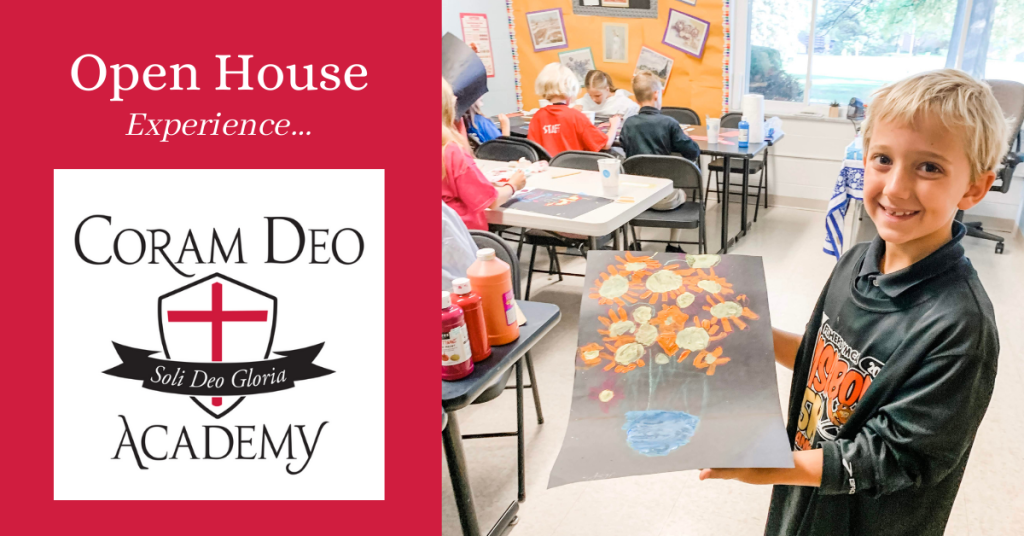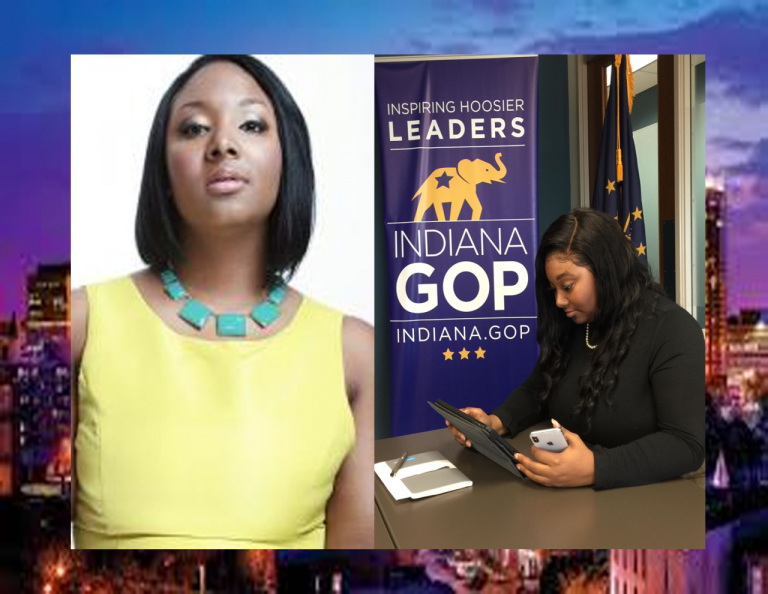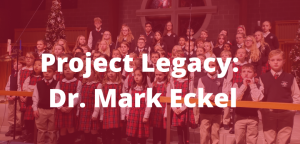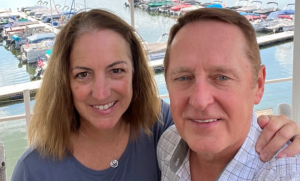by David Seibel, Head of School
This post is the 17th in Project Legacy, a series of interviews that aim to learn from leaders outside of education to influence those inside education. See our most popular posts in Project Legacy on Mayor James Brainard and Northview Pastor Steve Poe.
I recently sat down with Whitley Yates, the Director of Diversity Engagement of the Republican Party and founder of Niche, a marketing firm specializing in public relations and brand storytelling. Whether you lean progressive or conservative in your views on policy, listening to Whitley Yates’ views on life, rhetoric and relationship will challenge assumptions you might be making. (See also Dave Seibel’s posts on race and privilege.)
Life Matters
“When I was born, I had fetal alcohol syndrome and was drug- addicted. The doctors told my mother that I would not be able to learn.”
Whitley’s condition at birth was not her conclusion in life. Because her mother was not able to care for her, she was adopted. In looking back on the story, there was every earthly reason for her mother to have terminated the pregnancy due to her inability to parent her and the difficult life Whitley would have. However, Whitley’s mother prioritized life even if it would come at a great cost and adoption would be the best option for her.
As Whitley began her career in politics, she knew she wanted to work for the political platform that protected life: namely, the unborn, marriage between a man and a woman, and the lives of the marginalized. Understanding her own story from the past has enabled her to proclaim a vision for life within her role in the Republican party. Whitley aims to be a voice for those who have no voice.
Ordinary Life Matters
Whitley also shared,
“I lived with my grandparents and my grandma died of cancer. When I was 12, my grandpa sent me to the Soldiers & Sailors Orphanage. I lived in a dorm with 20 other girls, no cable or internet and for Christmas, we spent it with the American Legion. I felt institutionalized after those years in the orphanage. Growing up I felt different than other children.”
Whitley shared that she did not feel like she ‘fit in’ in her time at Indiana University either until she got involved with student government and Young Life, a Christ-centered youth organization.
Within these groups, Whitley began to form her own identity and see how she could make an impact.
“I was the student leader of our dorm at IU and I took it very seriously. In my leadership, we were able to accomplish more than any of the other dorms because of our planning of events and budgeting. However, when the other dorms ran out of money because they did not plan or budget, the IU administration decided to aggregate all of the dorms’ funds and redistribute them equally among the dorms. I knew this was not right and I led the revolt to correct this unfair treatment. I even got some of the administration to sign my petition and join my side!”
Whitley is against abortion and socialism yet is for giving a voice to the marginalized, developing policies that care for the disenfranchised, and moving beyond political platitudes to actual progress in our most vulnerable communities. For Christian parents and educators, it is often convenient to choose our view on an issue without any nuance or understanding of the various perspectives. I appreciated that Whitley challenged all of the stereotypes of the democratic and republican parties. (I’ll discuss more below in the section entitled Relationships Matters.)
Through understanding her own story, she has developed excellent listening skills and uses her platform to provide advocacy and opportunity for those who often don’t have a seat at the table. We would do well to make sure that our credo as believers is not just ‘black lives matter’ or ‘blue lives matter’, but rather to see that each and every life in the womb or outside of the womb matters. As C.S. Lewis wrote in The Weight of Glory, “There are no ordinary people. You have never met a mere mortal.”

Rhetoric Matters

Whitley shared her belief that the democratic party ‘pushes political platitudes but makes no real progress and has a track record of false promises to the communities that their campaigns target.’ Whether you agree or disagree with her perspective, we should pause to consider the power that words have on how individuals view the world around them. The author of 1984 and the essay “Politics and the English Language” George Orwell wrote,
“A scrupulous writer, in every sentence that he writes, will ask himself at least four questions, thus: 1. What am I trying to say? 2. What words will express it? 3. What image or idiom will make it clearer? 4. Is this image fresh enough to have an effect?”
Orwell also writes,
“But if thought corrupts language, language can also corrupt thought.”
The way that we describe reality impacts the way our listeners view reality.
Whitley regularly phrases big ideas in succinct ways such as,
- Whenever there’s poison in the forest, you can find the remedy nearby.
- Your condition is not your conclusion.
- My steps are ordered.
- You should be a tree that produces fruit.
- I may not be where I want to be, but I am always where I am supposed to be.
It is not just politicians that should understand language’s impact on our thoughts, but also parents and educators. Words should be our tools and not our masters. We want to see boys become good men speaking well, men not just of wisdom but also of eloquence. Therefore, we should expect our children to use descriptive adjectives, strong verbs, and a variety of sentence types in their communications. Their recitations should be done with joy and sincerity, and their orations should be given with ethos (credibility), pathos (emotion), and logos (reason).
Relationship Matters
Whitley shared,
“When I asked my niece if she wanted to go to work with me, she responded, ‘Republicans don’t like black people.’ I could not believe that my 12 year old niece had picked up that idea, but I just said she needed to come and find out for herself. Upon her arrival, she got a picture with a governor, lunch with someone on staff, and a tour of the courthouse.”
Sitting across from the supposed ‘racist republicans’ showed her that her conceptions about a certain group of people were simply not true, and based upon speculation rather than actual observation. She had formed a conception about an entire group of people from a distance.
I would have gladly written this article about someone from the democratic party (with the caveat that Christians should not politically support abortion or gay marriage) to make the same point. We should be able to have lunch with someone that may have different political leanings than we do. We would probably, like Whitley’s niece, find out that we have more in common than we may realize. We would also find that we don’t see others accurately when we hold them at a distance. It takes great discipline to get out from behind your phone, television and computer and interact with real people. Remember what C.S. Lewis said, “There are no ordinary people. You have never met a mere mortal.”
RSVP for an Open House





